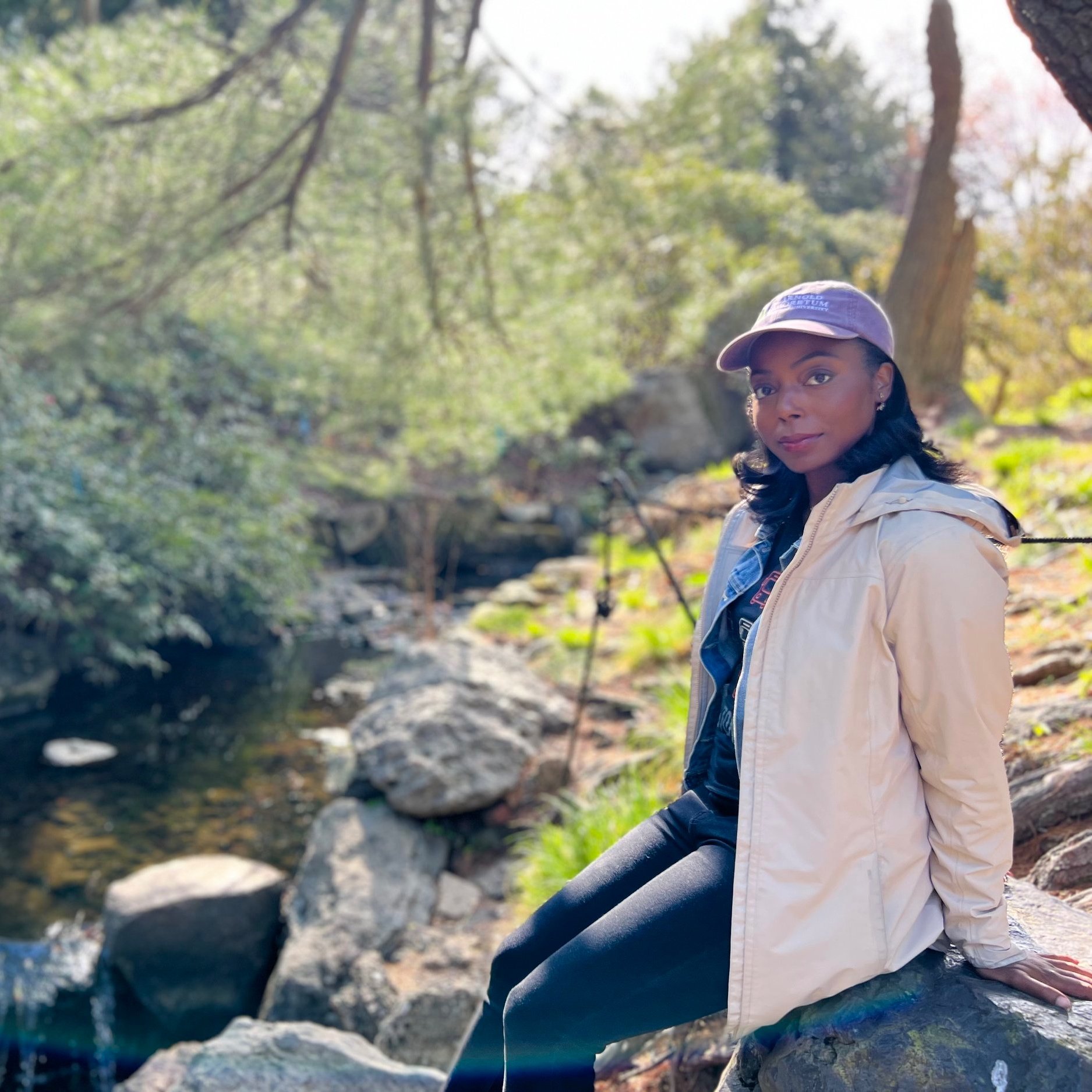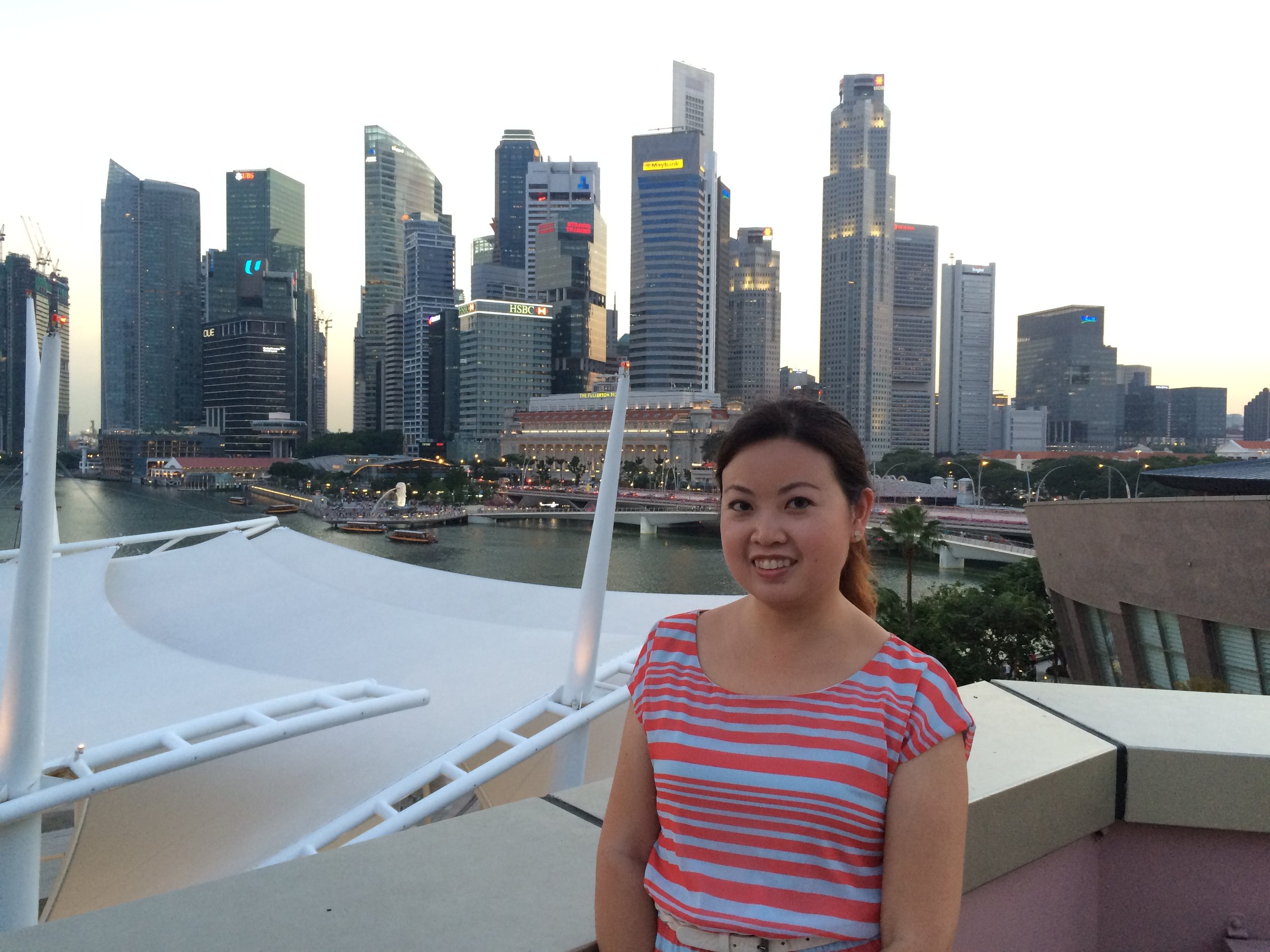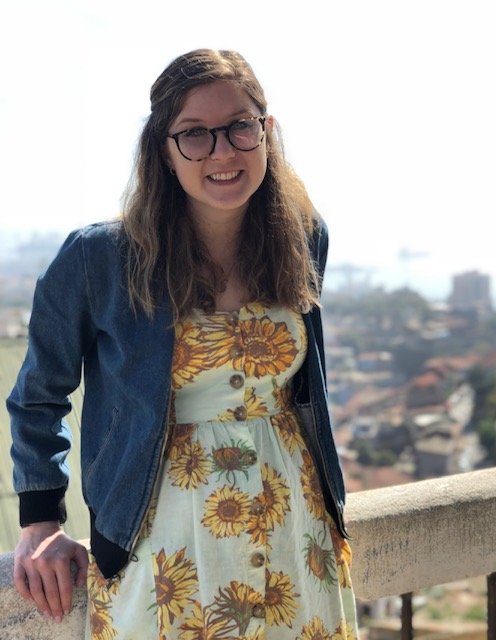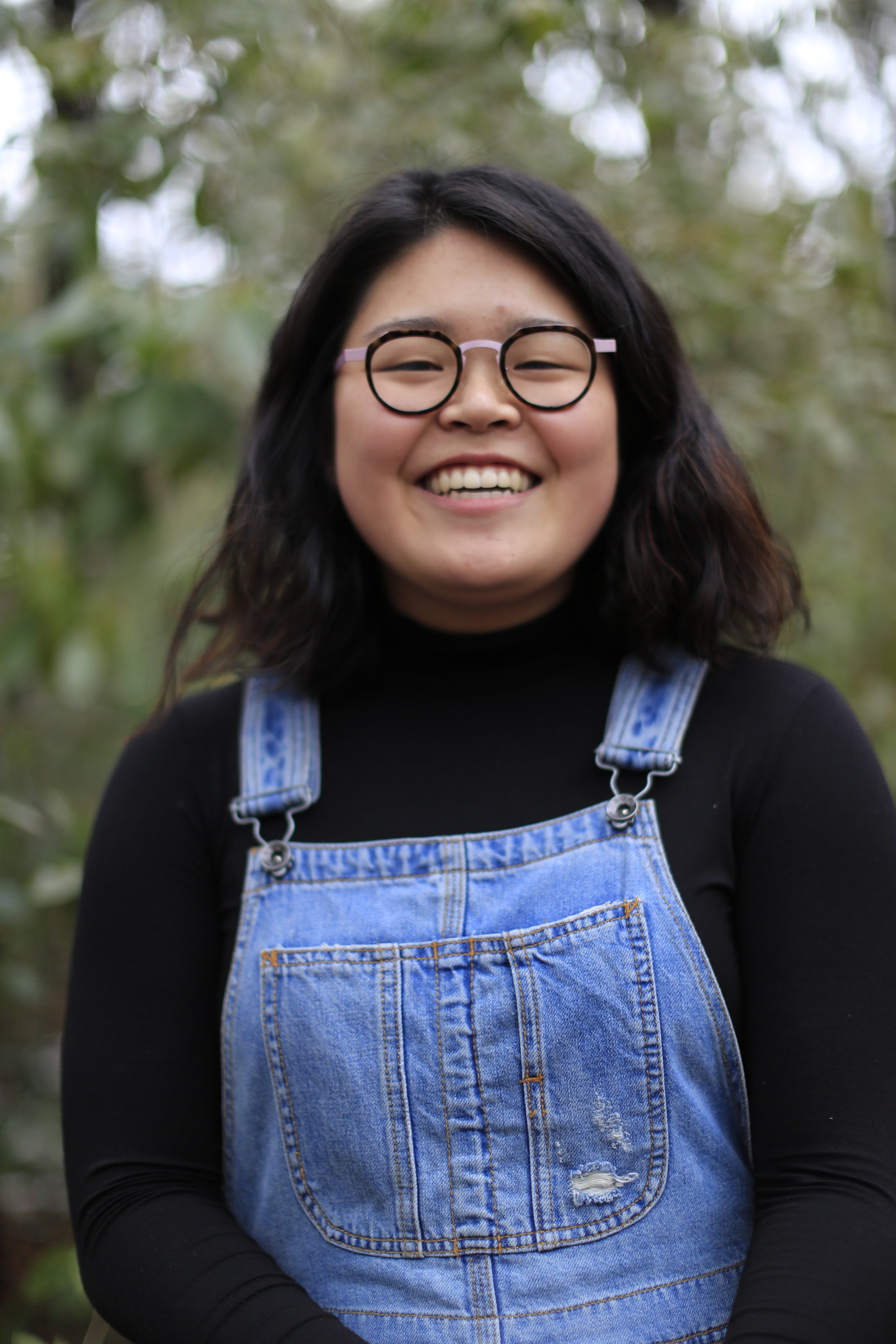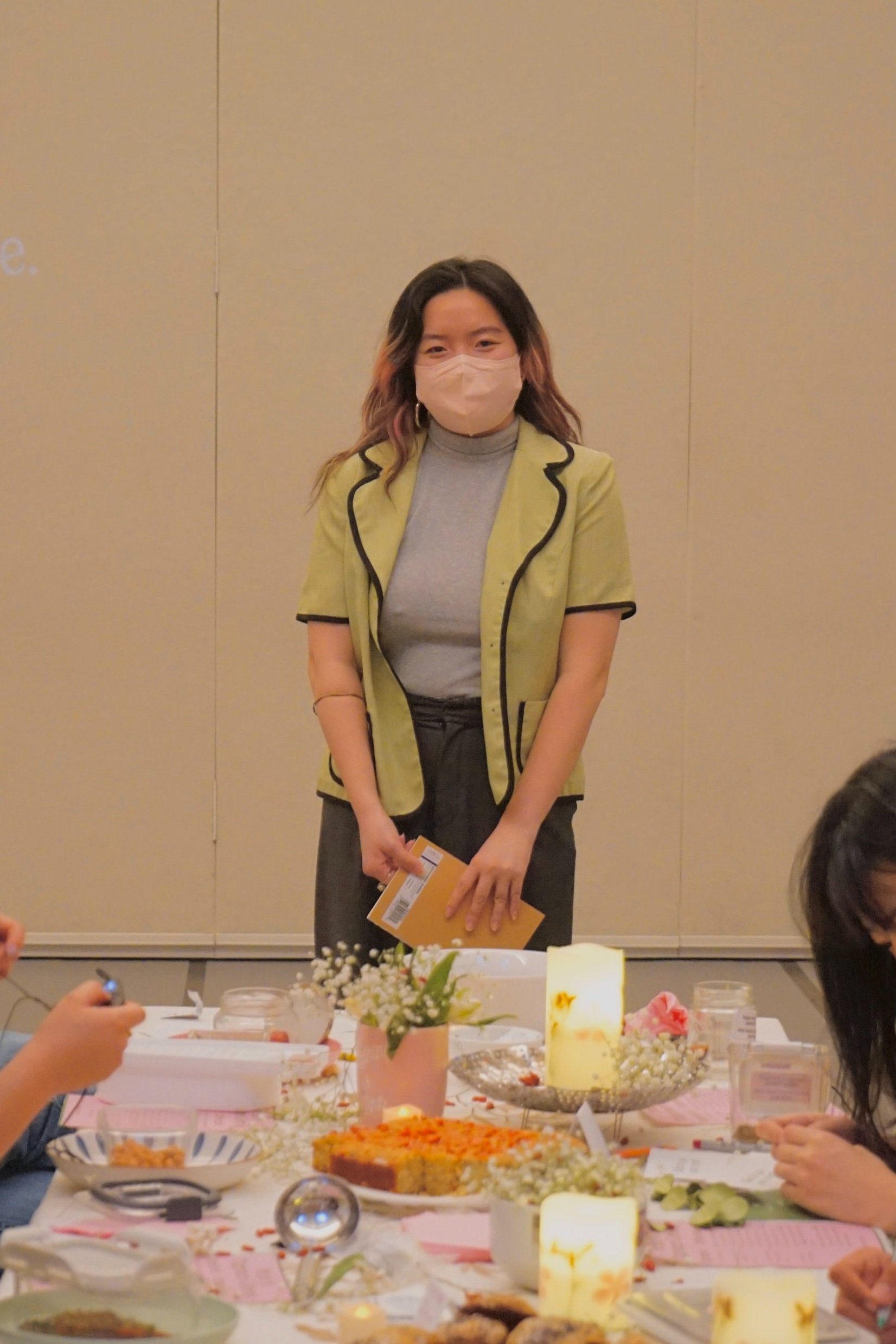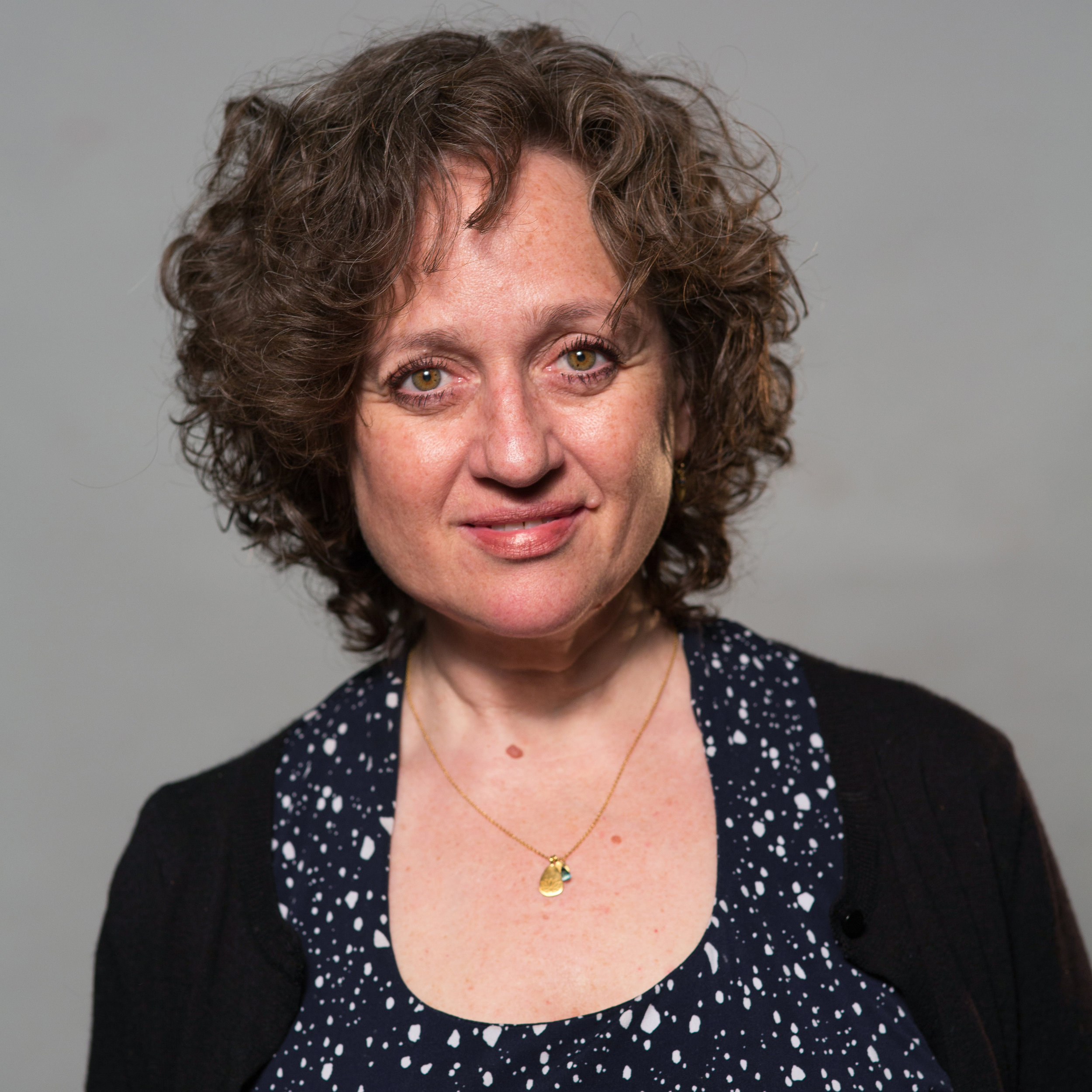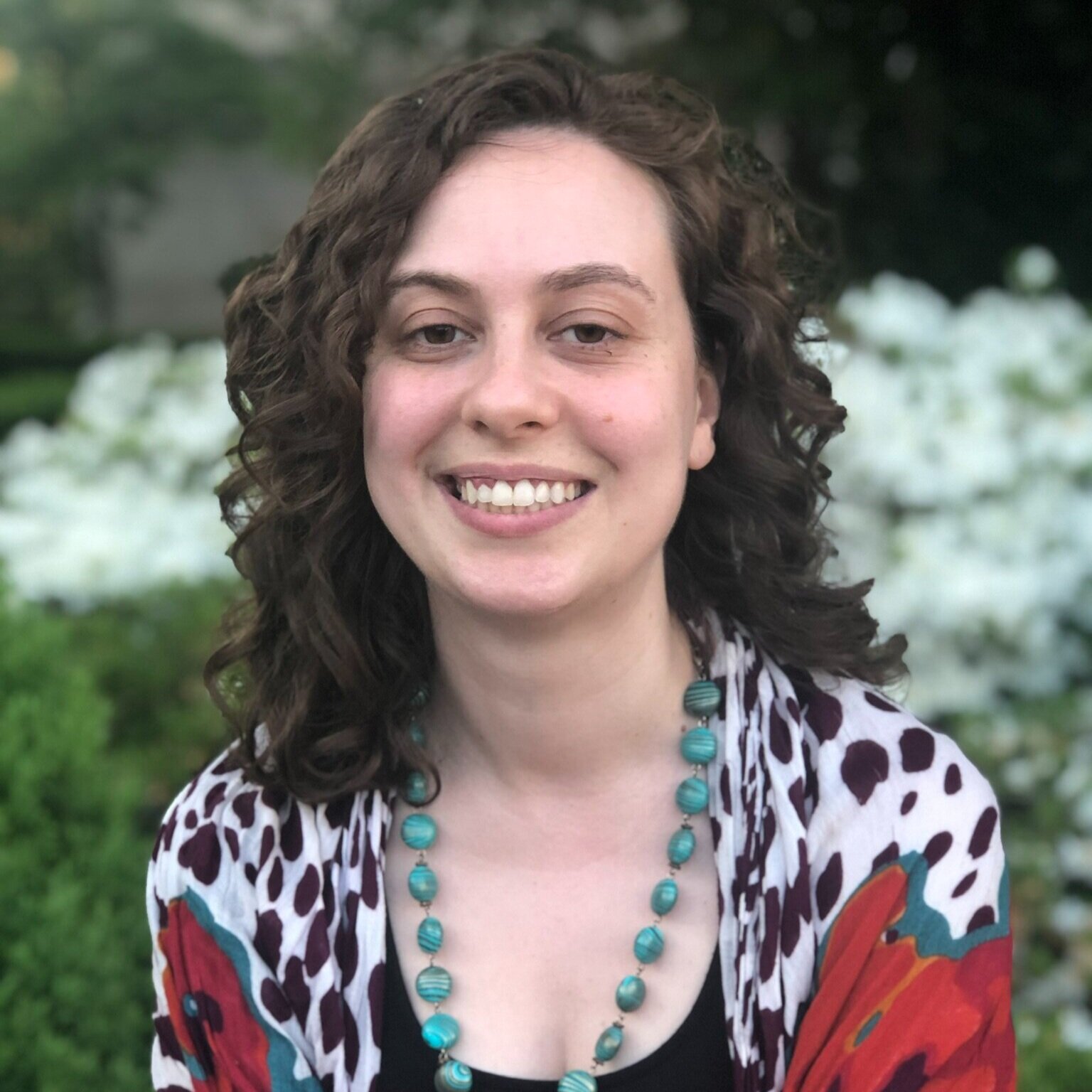Ambar Johnson (she/hers) is an urban and transportation planner, media producer, and creative composer with oscillating origins along the east coast.
Her philosophy that time travel and transportation are one of the same orients her thinking and approaches to people, projects, and perspectives. She comes to OHMA to layer and weave urban planning, oral history, and nature to move people — sonically, physically, emotionally, and temporally.
Ambar’s project involves documenting her favorite past time: road trips (regardless of mode) as a vehicle for storytelling. She plans to tell an oral history of I-95 as a timeline and roadmap about what this place means (or place/meant coined by Amiri Bakara) to flora, fauna, and families (including her owns) across generations and geographies I-95 spans. By bridging (oral) history and transportation she hopes to do three things:
1) delicately unravel something that impacts us all — how we get around
2) to restore continuity in families histories and
3) ensure processes and plans in the planning realm are rooted in rich, regenerative practices and histories.
In a world that rushes to move quickly across time, space, and schedules, Ambar aims to use her time in OHMA to travel slowly and listen closely to the people and environments around her.
She received a B.S. in History, Technology, and Society from the Georgia Institute of Technology and is a Public Voices Fellow of the OpEd Project and the Yale Program on Climate Change Communication. https://www.ambarjohnson.com/

